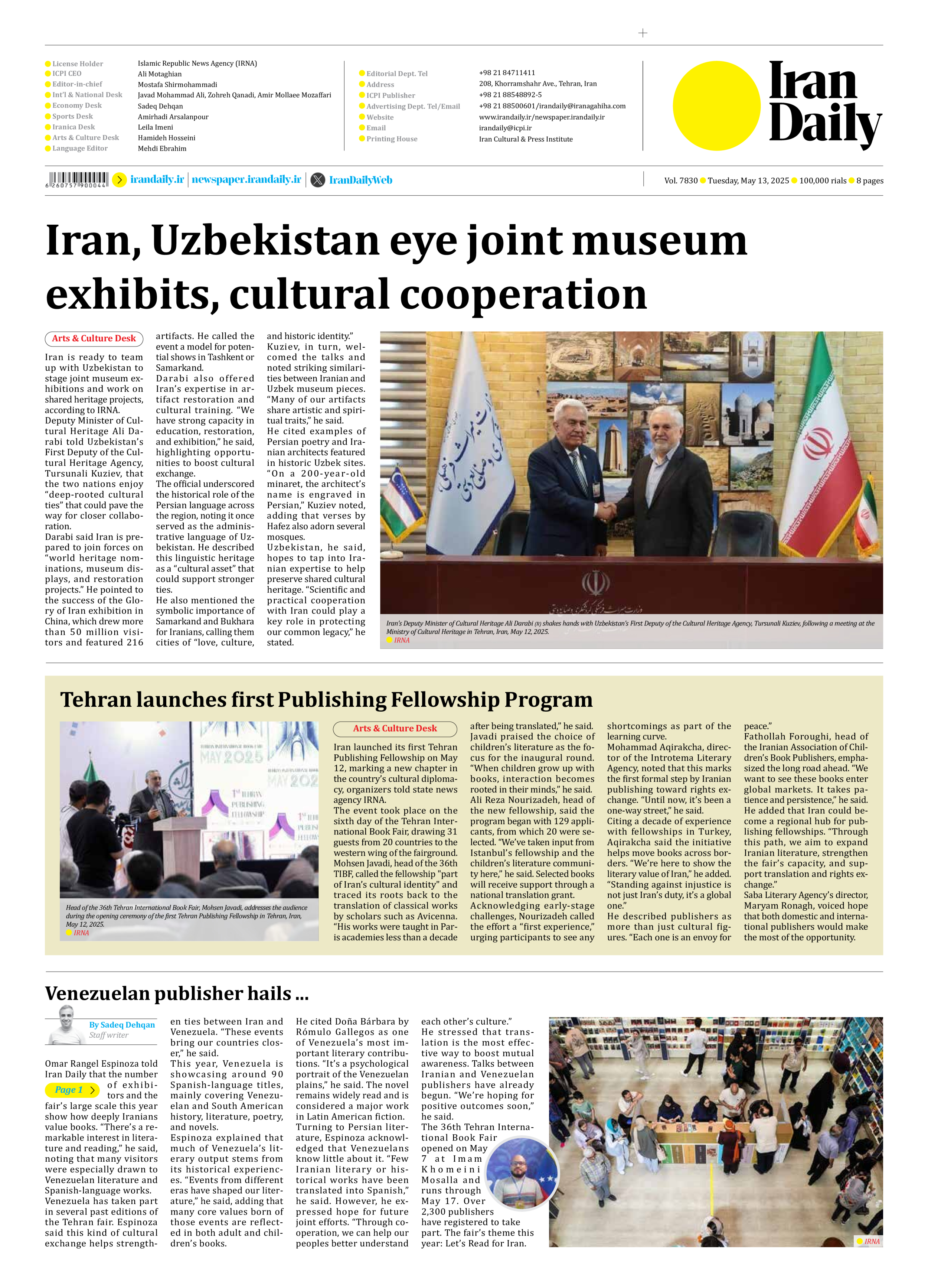
Tehran launches first Publishing Fellowship Program
Iran launched its first Tehran Publishing Fellowship on May 12, marking a new chapter in the country’s cultural diplomacy, organizers told state news agency IRNA.
The event took place on the sixth day of the Tehran International Book Fair, drawing 31 guests from 20 countries to the western wing of the fairground.
Mohsen Javadi, head of the 36th TIBF, called the fellowship "part of Iran’s cultural identity" and traced its roots back to the translation of classical works by scholars such as Avicenna. “His works were taught in Paris academies less than a decade after being translated,” he said.
Javadi praised the choice of children’s literature as the focus for the inaugural round. “When children grow up with books, interaction becomes rooted in their minds,” he said.
Ali Reza Nourizadeh, head of the new fellowship, said the program began with 129 applicants, from which 20 were selected. “We’ve taken input from Istanbul’s fellowship and the children’s literature community here,” he said. Selected books will receive support through a national translation grant.
Acknowledging early-stage challenges, Nourizadeh called the effort a “first experience,” urging participants to see any shortcomings as part of the learning curve.
Mohammad Aqirakcha, director of the Introtema Literary Agency, noted that this marks the first formal step by Iranian publishing toward rights exchange. “Until now, it’s been a one-way street,” he said.
Citing a decade of experience with fellowships in Turkey, Aqirakcha said the initiative helps move books across borders. “We’re here to show the literary value of Iran,” he added. “Standing against injustice is not just Iran’s duty, it’s a global one.”
He described publishers as more than just cultural figures. “Each one is an envoy for peace.”
Fathollah Foroughi, head of the Iranian Association of Children’s Book Publishers, emphasized the long road ahead. “We want to see these books enter global markets. It takes patience and persistence,” he said.
He added that Iran could become a regional hub for publishing fellowships. “Through this path, we aim to expand Iranian literature, strengthen the fair’s capacity, and support translation and rights exchange.”
Saba Literary Agency’s director, Maryam Ronagh, voiced hope that both domestic and international publishers would make the most of the opportunity.







